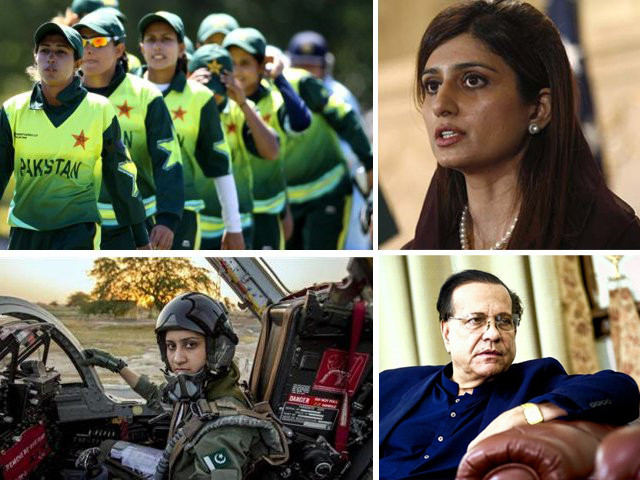However, negativity has to be fought with positivity. We, the liberals, have to move forward with our actions to defeat the agenda of those coming in our way rather than feel pessimistic and bogged down.
To work towards creating a terror-free climate in South Asia before the Kashmir issue can be negotiated upon would also give Pakistan the opportunity to raise its concerns about the alleged Indian interference in Balochistan.
At the same time, the Pakistani establishment must look into its own blunders in Balochistan. Pakistanis citing reports of international human rights organisations in India-administered Kashmir, often shy away from believing reports from the same organisations about human rights violations in Balochistan, though the Supreme Court of Pakistan has also recognised human rights violations in Balochistan. It’s a given that Balochistan has a complex history. Out of a basic commitment to human rights values, one would suggest that the 15-point resolution on Balochistan mooted by Pakistan’s own Supreme Court Bar Association and supported by various Pakistani political parties, be implemented right away.
Moving on from these unfortunate events, first and foremost, I must make clear that the acknowledgement of Pakistan’s positive developments is not in any way written out of a patronising desire. In fact, as someone who has been committed to human rights globally, as well as one who bears a personal attachment to South Asia, I am writing this piece as a genuine appreciation for whatever has happened in the spirit of solidarity with the liberal and progressive forces in your country.
Of course, much more needs to be done to make Pakistan a better place and the same applies for India. I am just as aware that my country, India, also has a long way to go in eliminating socio-political identity clashes based on religion and other factors, as well as ensuring that the rights of women and the poor are safeguarded.
1. Firstly, I offer the heartiest of congratulations on the hanging of Salman Taseer’s killer. Although, as unfortunate as it is that many Pakistanis have bestowed upon him the halo of martyrdom, the enforcement of the death penalty in this case acts as an indicator that the law does not spare violent extremists, whether they act against minorities or against those who speak up for them. However, to reinforce this sentiment, the blasphemy law under Section 295-C of the Pakistan Penal Code needs to be repealed once and for all:
“295-C: Use of derogatory remarks, etc., in respect of the Holy Prophet:
Whoever by words, either spoken or written, or by visible representation or by any imputation, innuendo, or insinuation, directly or indirectly, defiles the sacred name of the Holy Prophet Muhammad (PBUH) shall be punished with death, or imprisonment for life, and shall also be liable to fine.”
Section 295-A of the Pakistan Penal Code on outraging religious sentiments can stay for the time-being and its existence can be cited as a valid reason to do away with the unnecessary additional blasphemy law. The Indian counterpart of this section exists till today, which Jinnah played a role in drafting. He made clear that a well-researched academic critique of a historical figure regarded as a prophet would not be punishable under that provision.
“295-A: Deliberate and malicious acts intended to outrage religious feelings of any class by insulting Its religion or religious beliefs:
Whoever, with deliberate and malicious intention of outraging the 'religious feelings of any class of the citizens of Pakistan, by words, either spoken or written, or by visible representations insults the religion or the religious beliefs of that class, shall be punished with imprisonment of either description for a term which may extend to ten years, or with fine, or with both.”
Also, a climate must be created wherein Pakistani non-Sunnis in rural areas don’t feel pressurised into fleeing the country. This can only be achieved by creating a blanket of security for minorities through urgent police reforms and an overall improvement in law-and-order machinery. Pakistani Christians, who had migrated to Thailand and who now face harsh circumstances, should be asked to come back once the blasphemy law is repealed. They should also be duly compensated for being subjected to persecution.
2. Another positive development in your country has been the introduction of a marriage registration law for your Hindu minority, which had unfortunately been non-existent earlier. Pakistan has also resisted the pressure from the patriarchs of the Hindu community to remove the divorce clause from the act, which is commendable. Earlier, it would be almost impossible for Pakistani Hindus to prove that they are married, allowing Muslim extremists to exploit Hindu women, particularly by forcing them into marriages.
The widows found themselves in the worst of circumstances as they did not have a hold of any valid document that could serve as evidence. There were three failed attempts in 2008, 2011 and in 2014, after which in 2016, the bill has been passed by the Sindh assembly as well.
The Punjab assembly is still due to pass this bill, which should happen as soon as possible, followed by all other provinces, even those with a small Hindu population. However, it must be noted that this bill contains a clause that invalidates the marriage when any of the spouses convert – this is problematic, given the history of forced conversions of Hindu girls to Islam in rural areas.
Why not instead make conversion by either spouse a ground of divorce, rather than annul the marriage? These measures should be taken as soon as possible; else, this new legislative proposal may partially defeat the very purpose it has set out to achieve.
In Pakistan, the positive role of religious minorities in nation-building is being emphasised in school textbooks is, no doubt, a step in the right direction. Even so, more needs to be done in this regard in terms of employing education as a medium to dispel prejudices based on religious identity.
The proposal for allowing the minority religious groupings in Pakistan to observe holidays on their festivals is also a great initiative.
I must also state that while I welcome these developments, I didn’t even earlier have a grossly exaggerated image of minority problems in Pakistan, serious as they indeed are, and I know you have produced prominent public figures from the minority communities.
3. The progress you have made in promoting women and their rights is outstanding. To start with, congratulations on your women’s cricket team triumphing over India in the T20 World Cup. The success of your women’s team have inspired more girls to take part in sports, according to your captain Sana Mir – who, by the way, like many other Pakistani women, is fond of Indian sarees. Also this instance from the match between our women’s teams is truly heart-warming and reflects the true spirit of sportsmanship.
Photo: Cricket Addictors Facebook page.
Shahid Afridi, who had contended that Pakistani Pakhtun girls are only best at cooking, would do well to reconsider his position, given their defeat on the same day and the long history of excellent male cooks in Muslim societies. How about him trying his hand at preparing biryani for the women’s team? Also, he should probably acknowledge just how smart Pathan girls are proving themselves, some girls from Peshawar coming with brilliant biotechnological devices being testament to that.
Your country has indeed preceded ours in having women as fighter-pilots and paratroopers. Your former Foreign Minister, Hina Rabbani Khar, a woman, also made quite a fashion statement in India. Both our countries have had a woman as the prime minister. Your country has also introduced reservations for women in legislatures, something India is also trying to achieve.
The passing of the Women’s Protection Act in Punjab has also been a great milestone to protect women from domestic violence or expulsion from their homes. Indeed, the human rights commission and other such bodies must ensure that it is implemented to the tee. It is good that the law also carries a penalty for women filing false complaints. This law should be introduced all across your country.
Furthermore, a Pakistani filmmaker Sharmeen Obaid Chinoy won Oscars for documentary films raising their voice for the female victims of acid attacks, and honour killings in Pakistan. The existence of such problems in the developing world is not unknown to westerners, but the efforts in trying to make a difference needs to be applauded, which Chinoy has done with her films by bringing the issues to a global platform.
Besides, when it comes to human suffering, help and support from activists from all quarters should be welcome – with awareness, comes a more resounding voice for change. For this reason, it shouldn’t be seen through the prism of national shame. Also, if a foreigner like Brandon Stanton can be greatly appreciated by Pakistanis for speaking up for Pakistani victims (in his case, of bonded labour), then why not Chinoy?
4. Also, congratulations on your parliament building being the first to run entirely on solar power!
However, despite all your achievements, there is a pressing matter that magnifies day by day. On behalf of all those Indians who wish for the same in our own country, your country and elsewhere, I must say that we shall, without compromising our national security, fight all those jingoistic and extremist tendencies that have spiralled uncontrollably.
The sheer display of barbarity in the attacks in Brussels as well as the airports of Karachi and Peshawar, amongst many others that have taken place in the name of jihad is one that collapses the heart and makes us all feel defeated in the fight for humanity.
As an Indian citizen, I would particularly emphasise that we, Indians, would like to see the perpetrators of the 26/11 Mumbai attacks convicted. Although we do appreciate the headway made in the investigations in this matter by Pakistani officers, as your officer Tariq Khosa had also pointed out,
“The case has lingered on for far too long.”
We want nothing more than this to finally come to an end, with the perpetrators being given their due punishment.
Furthermore, just like in the case of Salman Taseer’s killer, exemplary punishment needs to be meted out to those in Pakistan who have inflicted acts of terror upon innocent civilians in India, Afghanistan and Iran, which can pave the way for the resolution of disputes and a peaceful, prosperous South Asia.
It is not just sufficient to condemn these atrocities, but to develop an ideological roadmap to rebut all those illiberal tendencies that run completely counter to modern values (religious freedom including apostasy, gender equality etc. are not negotiable in the name of cultural relativism) that culminate in these disgusting acts of violence against innocent civilians, as I have discussed in this article.
To all the liberals in Pakistan seeking rationalism, humanism, gender equality, a scientific temperament and a climate for productivity in fields like art and sport, I must say, congratulations! You have indeed achieved some milestones in the recent past. Let’s keep the momentum going and keep heading in the right direction, as should all of us.



COMMENTS
Comments are moderated and generally will be posted if they are on-topic and not abusive.
For more information, please see our Comments FAQ